Last Updated on August 15, 2024
Does your immune system need a little extra support this season? Here’s what to know about how to boost your immune system with herbs to help you fight off those viruses.

I’ve been doing a deep dive into the intricacies of the immune system as part of my research for a book on elderberries that’s kind of been my whole life for the last several months. Oh, boy, have I learned a lot from the giant pile of amazing herbalism books I’ve been reading. (Not to mention a gazillion scientific studies on Pubmed. Plant medicine is getting a lot of attention in the research community right now. Hurray!)
If you haven’t read much about herbal remedies, there’s a vast world of information out there about how to use plants to support health. You probably already have several powerful herbs in your kitchen right now, and there are many other useful ones to know about that can help you stay healthier this season.
WHAT DOES YOUR IMMUNE SYSTEM NEED TO DO ITS JOB?
It’s important to understand that there’s a lot going on in our body’s ability to fight off viruses. Herbs can definitely help, but to keep your immune system working properly, you need to make sure you’re not sabotaging its ability to do its job. (BTW “boost” is a popular term that isn’t entirely accurate, but I’ll use it here because it’s a good shorthand for things that either support or stimulate immune function.)
Your body needs some basic things to keep your immune system functioning properly:
- Enough sleep. Research shows that insufficient sleep compromises immune function. Make sure you’re getting quality sleep, and plenty of it if you want to evade the sniffles. (Here are some foods that support healthy sleep and herbs for sleep to consider. And don’t forget the importance of a super comfy non-toxic mattress.)
- A wide array of nutrients. This post on immune-boosting foods goes over the important ones involved in immune function. Suffice it to say that most of us are probably falling on short on several nutrients our immune systems need to work properly. If you can figure out what you’re short on and eat more of the foods rich in those nutrients you stand a better chance of avoiding the sniffles.
- Good gut health. Experts estimate about 70% of our immune system is in our gut! Gut microbes play a vital role in defending us from illness, and the choices we make have a huge impact on our gut flora. Here’s what the latest research says about keeping our microbiomes healthy. Emerging research also suggests chemical cleaners can alter gut bacteria, yet another reason to green your cleaning routine.
- Manageable amounts of stress. Long-term stress makes it much harder for the immune system to function effectively. Here are some easy ways to bring down levels of the stress hormone, cortisol. You might also benefit from calming herbs that promote relaxation.
Do what you can to get enough sleep, reduce stress, and eat a wide variety of whole foods for better health overall. Check out the posts linked above for more details.
If your immune system needs some extra support, there are some wonderful immune-supporting and antiviral herbs that are worth exploring.
Are you fascinated by herbal remedies, too? Here are some of the best herbal books to consider adding to your reference collection.
HOW TO BOOST YOUR IMMUNE SYSTEM WITH HERBS
Certain herbs strengthen the overall effectiveness of our immune response. Others stimulate our immune systems to go after invaders. Some herbs actively interfere with viruses’ ability to penetrate our cells or replicate. Some have several of these actions.
Some of these immune-boosting herbs are worth trying to see if you can stay healthier this season.
HOW TO BOOST YOUR IMMUNE SYSTEM WITH IMMUNE-STRENGTHENING HERBS
Astragalus
Many herbalists recommend astragalus as an effective immune strengthener, and research studies have demonstrated its immune-stimulating and antiviral activity (review of studies here). Study authors note that “experiments, both in vivo and in vitro, showed that AR can enhance the body’s natural defense mechanisms.”
Astragalus root can be added to soups, elderberry syrups, and homemade tea blends. I love this chai tea recipe from Rosalee de la Forêt — with astragalus, reishi, and other beneficial herbs, it’s both delicious and supportive of better immune function.
Chaga
Chaga is a fungus that grows on birch trees and is sold in chunks or in powder form that’s usually made into a tea. (Or in this mushroom coffee that makes it easy to take your medicinal mushrooms!)
Chaga has been used to strengthen immunity and overall health for centuries. As with other powerful plant medicines, you should do your research before using chaga, as certain health conditions and medications may be contraindicated. Chaga may reduce blood sugar and clotting, and its immune-stimulating abilities may not be recommended for those with auto-immune conditions.
Reishi
Reishi is another mushroom that can strengthen immune response. Reishi has many other benefits as well, such as balancing hormones and supporting liver function. You can use it in cooking or take it as a supplement. Here’s a good overview.
HOW TO BOOST YOUR IMMUNE SYSTEM WITH IMMUNE-STIMULATING AND ANTIVIRAL HERBS

Elderberry
There are very good reasons elderberry has been a popular herbal remedy for centuries. Elderberry is not only delicious, but several studies in human subjects have shown it to shorten the duration and severity of flu. Researchers believe it works in three different ways, 1) stimulating immune response, 2) interfering with the ability of viruses to infect cells, and 3) keeping viruses from replicating in already-infected cells.
It’s recommended you take elderberry frequently at the first sign of infection, like that scratchiness in your throat or the feeling of congestion in your nose. Herbalists suggest taking a small dose of tincture or a spoonful of strong elderberry decoction every hour to help prevent a virus from getting a foothold. (You can also take a spoonful of syrup, but that would be a ton of sugar over the course of the day, so I don’t recommend it.)
Here’s how to make elderberry tea by decocting it, which means simmering it rather than simply steeping in hot water. You can take this strong tea by the spoonful or dilute it in water and sip it over the course of the day. The berries can be simmered again for a weaker tea. Better yet, add some of the immune-boosting herbs above; you’ll find several of them in my homemade elderberry syrup recipe. Just skip the honey if you don’t want all the sugar.
You can also buy elderberry extract or syrup from Norm’s Farms here.
You can find lots more ways to enjoy elderberry in this post about the benefits of elderberry, or whip up some elderberry overnight oats, packed with nutrients your immune system needs. Here are 20 uses for elderberry, whether you’ve got fresh, dried, or frozen berries. You’ll find even more in my new book, Everything Elderberry.
Elderflower is also a useful immunomodulator and makes a thoroughly delicious tea, noted for soothing respiratory symptoms.
Elderberry is one of the many herbs you can grow in shade. Here are some of the best elderberry varieties to consider growing. and detailed instructions on how to grow elderberry.
Many people like to forage their own elderberries. Just be sure you consult a good field guide to positively identify any plant before picking. I’ve seen so many people mistake other plants for elder, and many are quite toxic.
Here’s what to know about elderberry identification, and here are some of the best foraging books I’ve found.
And if love the idea of foraging herbal remedies, be sure to check out this post on dozens of other wild herbs to explore.
Garlic
Besides making food delicious, garlic has potent antiviral properties. It’s considered by many one of the most effective herbs for stopping a cold in its tracks. Here’s more on the many benefits of garlic, and here’s a recipe for a potent fire cider from one of my favorite herbal bloggers, Devon at Nitty Gritty Life.
If you like growing your own natural remedies, here’s how to grow your own garlic.
Ginger
A powerful anti-inflammatory, ginger is one of the top herbs recommended by herbalists for immune support. Here’s a write-up on the health benefits of ginger from Rosalee de la Forêt. She rates ginger as a top anti-viral herb, as does Rosemary Gladstar, who classes it among “our kitchen medicine miracles,” like garlic. It’s warming and decongesting as well as antimicrobial. Use it liberally in stir-fries, add it to elderberry syrup, or enjoy it in ginger tea.
Ginger is one of many useful herbs for colds to help you feel better if you do come down with something.
Echinacea
In Medicinal Herbs: A Beginner’s Guide, Rosemary Gladstar writes of echinacea: “Many herbalists and natural-medicine practitioners feel it’s the most important immune-enhancing herb in Western medicine.” A meta-review in The Lancet found that “Echinacea decreased the odds of developing the common cold by 58% … and the duration of a cold by 1-4 days.” Herbalists recommend using tinctured fresh echinacea root at the first sign of illness. You can buy it here, or make it yourself. Here’s a video from Rosemary Gladstar to teach you how. Spilanthes is another antiviral herb worth checking out.
Calendula
You might be aware of calendula’s uses for skin, but did you know it’s also a wonderful herb to consume as well? You can use calendula in tea or soups to strengthen immune response. You can also extract its medicinal compounds in tinctures. I love this recipe for a cold and flu elixir from the Herbal Academy that combines calendula with many of the other herbs mentioned above.
Calendula is one of many medicinal and edible flowers you can grow easily in your garden. If you’re interested in growing more of your own home remedies, here’s more information on starting a medicinal herb garden.
Licorice Root
Licorice is another potent antiviral worth considering. It’s used in small amounts in combination with other herbs and has a range of other benefits, including as a popular herbal remedy for cough. Licorice is not recommended for large doses or extended periods of time because of side effects like elevated blood pressure and lowered potassium levels. Here’s more on the benefits of licorice from Rosalee.
Spruce and Pine
Though there isn’t yet much research to support its traditional use for respiratory ailments, spruce is a great source of vitamin C and may contain other beneficial compounds. I love making spruce tea just because it tastes good and it’s so nice to be able to forage in your yard in winter. Here’s more on spruce tea and foraging spruce tips. Pine (in pine needle tea or pine tincture) are also helpful when you’re batting respiratory viruses.
Hope you have luck fending off viruses this season! What are your go-tos when your immune system needs a little boost?
Pin to save this info on how to boost your immune system for later!

Love experimenting with ways to get super healthy food into your daily diet? You might like these recipes as well!
Disclaimer: I’m a health enthusiast and writer/researcher, not a medical professional. Content on this website is intended for informational purposes only and is not meant to provide personalized medical advice. I draw on numerous health sources, some of which are linked above. Please consult them for more information and a licensed professional for personalized recommendations.
Photo credits: Susannah Shmurak, CaryllyN, gate74, RitaE
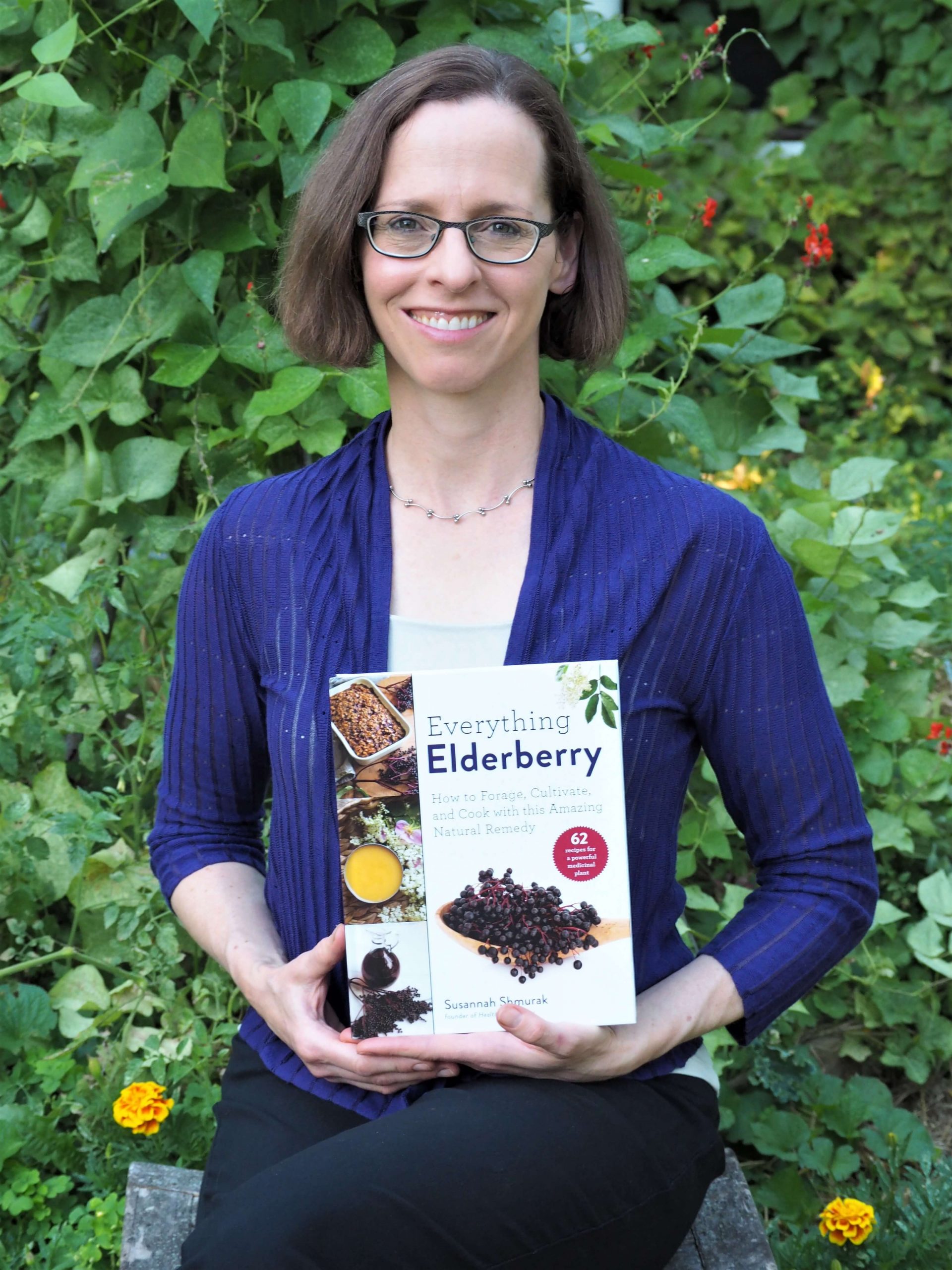
Susannah is a proud garden geek and energy nerd who loves healthy food and natural remedies. Her work has appeared in Mother Earth Living, Ensia, Northern Gardener, Sierra, and on numerous websites. Her first book, Everything Elderberry, released in September 2020 and has been a #1 new release in holistic medicine, naturopathy, herb gardening, and other categories. Find out more and grab your copy here.
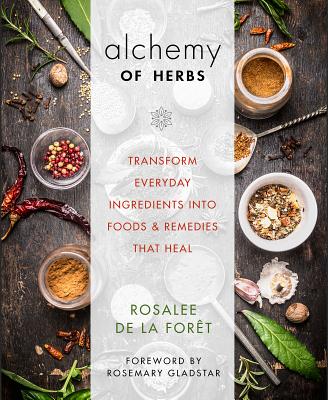
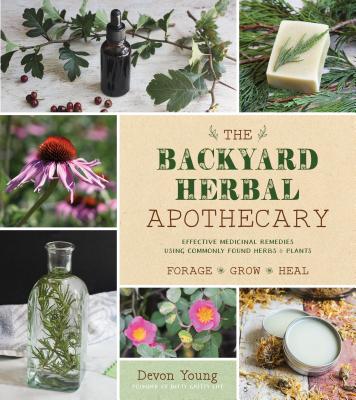

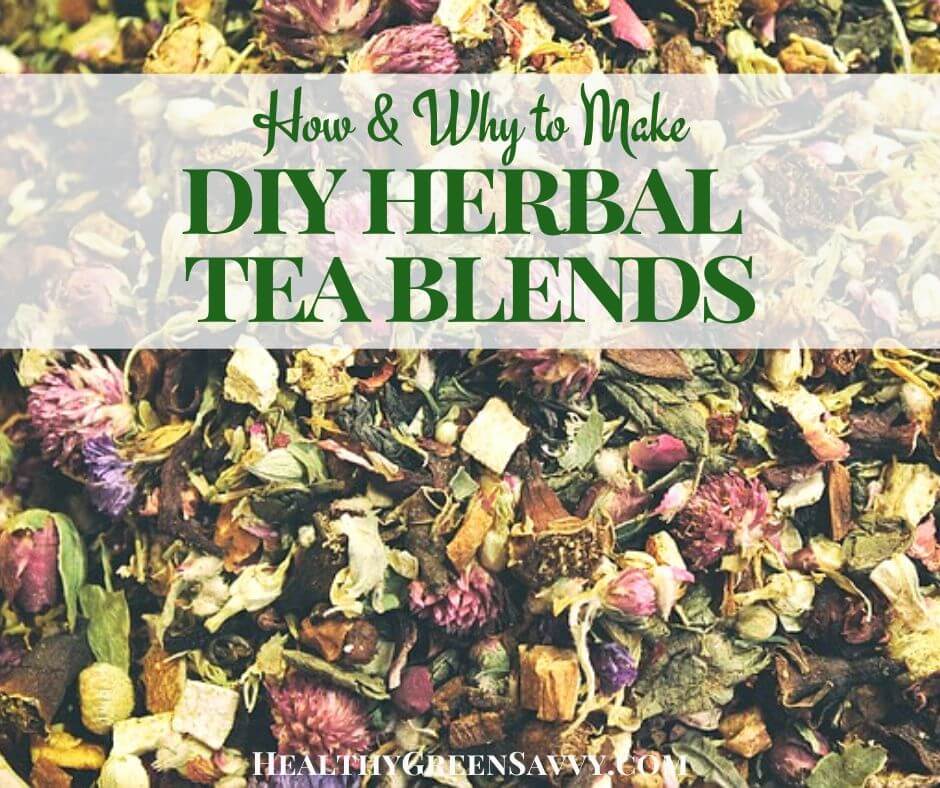
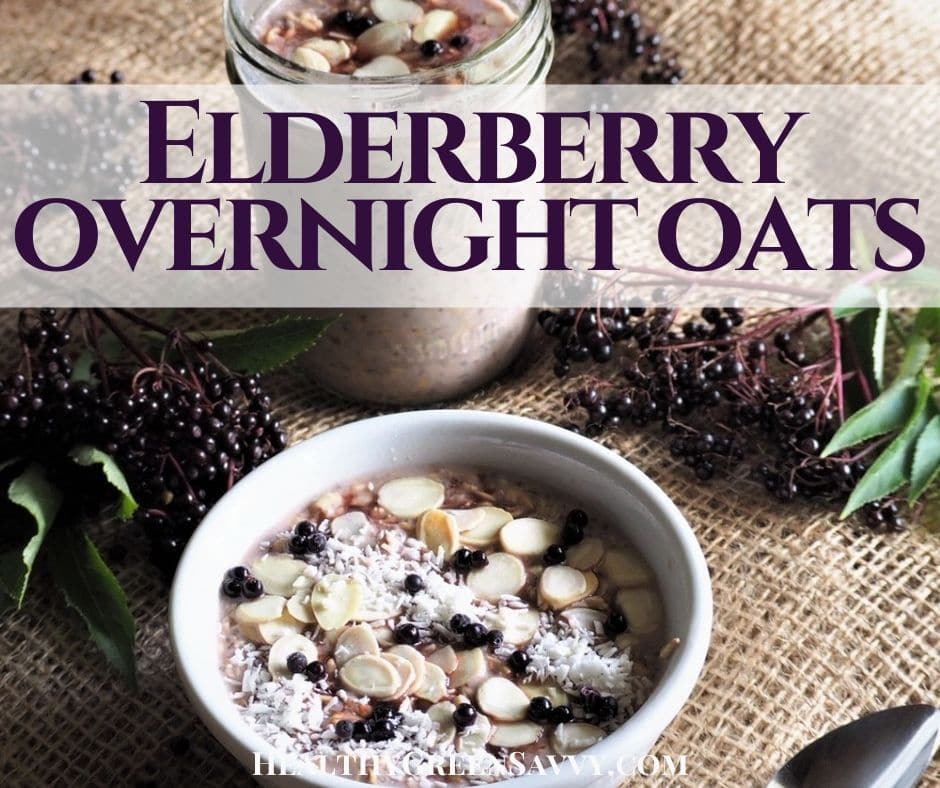
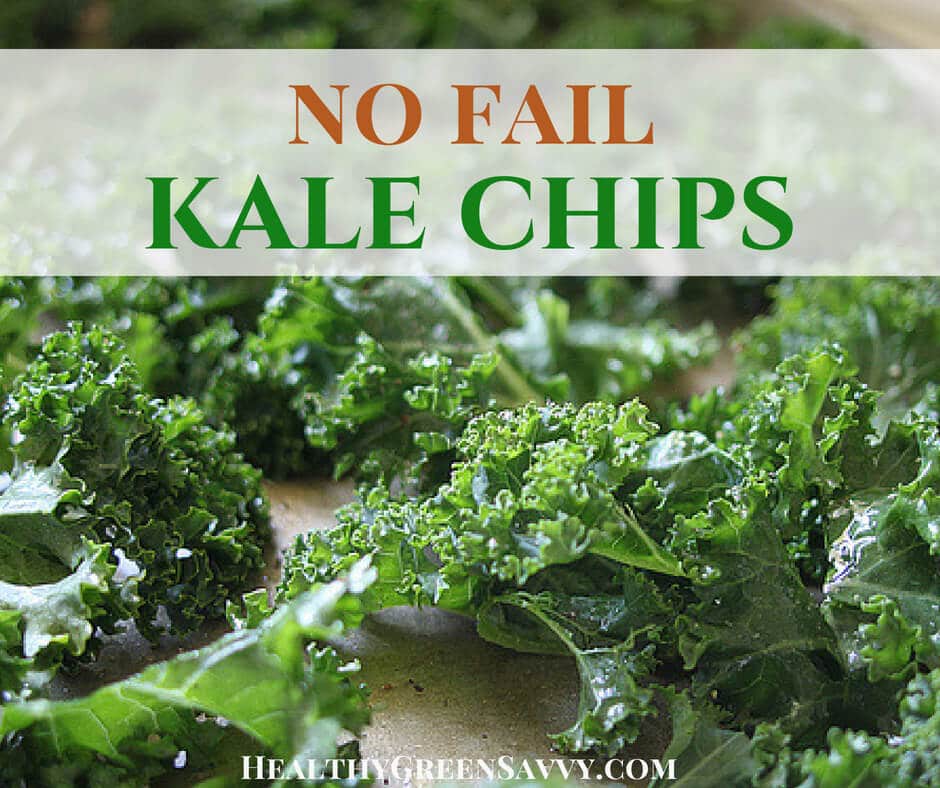
 Hi, I'm Susannah, a garden geek, energy nerd, and fan of healthy food and natural remedies. Need some simple, practical solutions for living healthier and greener? You've come to the right place! More about me and my green projects
Hi, I'm Susannah, a garden geek, energy nerd, and fan of healthy food and natural remedies. Need some simple, practical solutions for living healthier and greener? You've come to the right place! More about me and my green projects